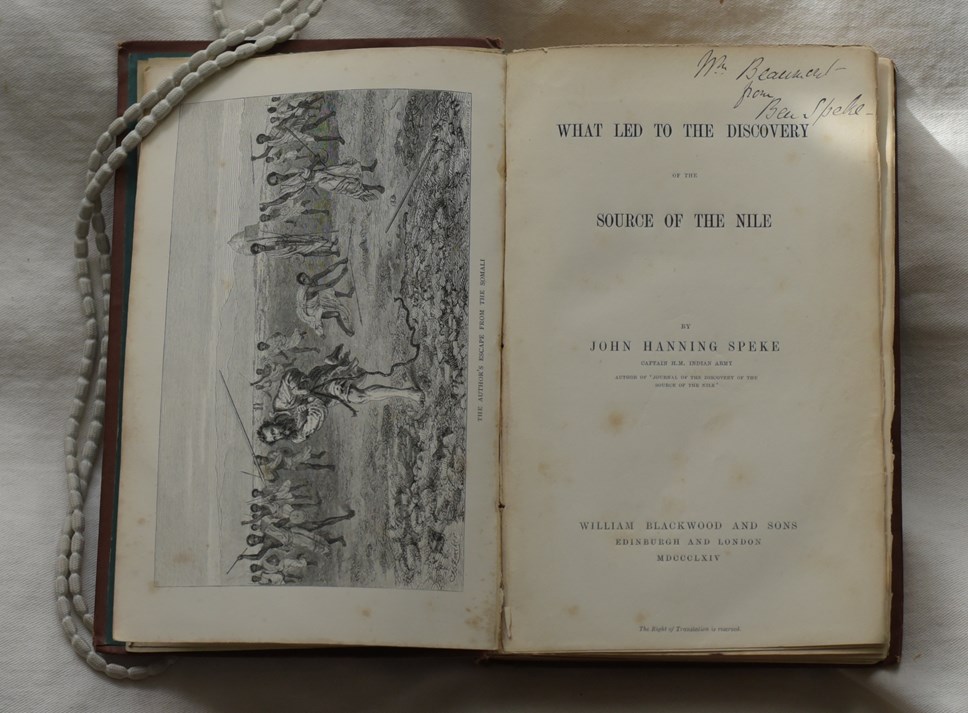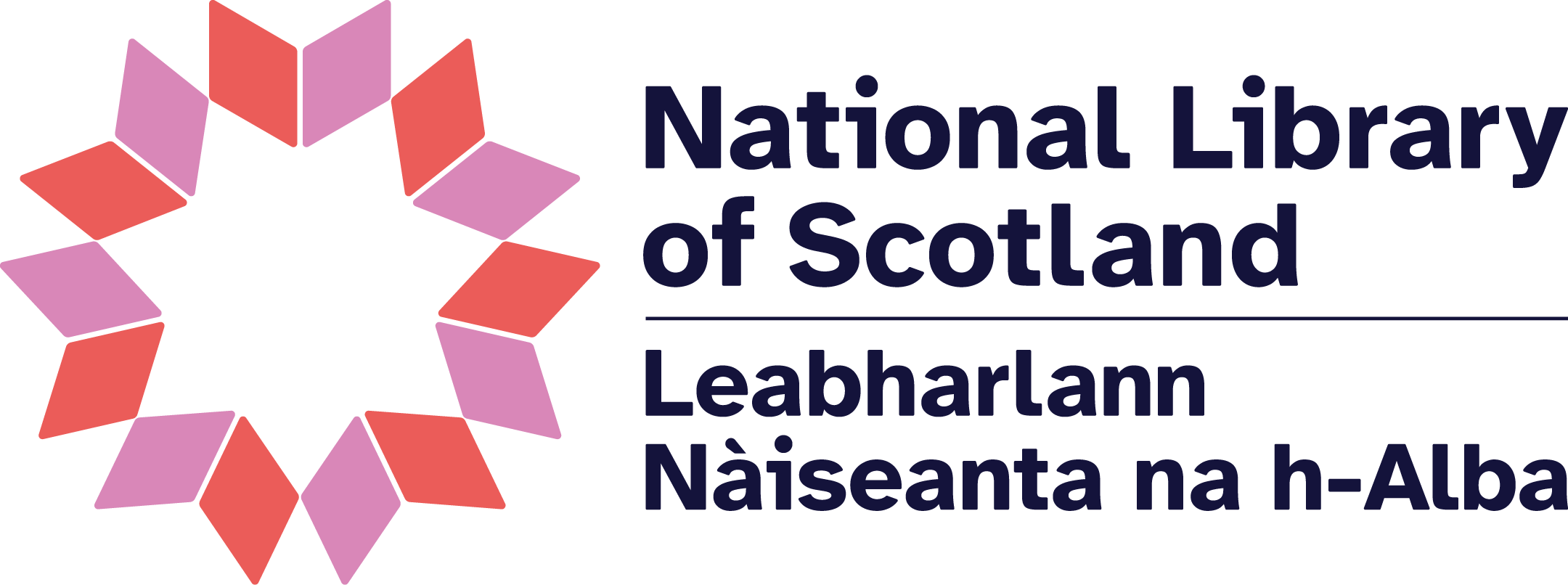
“SECRET” TEXT TELLS OF FEUD BETWEEN VICTORIAN AGE EXPLORERS
Special edition of book never meant to be seen by the public acquired by National Library of Scotland
A private edition of a book that told of a feud between two of the great explorers of the Victorian age and was never intended to be seen by the public has been acquired by the National Library of Scotland.
It tells of how John Hanning Speke solved one of the world’s greatest mysteries when he discovered the source of the Nile in 1858. However, Speke’s claim was contested by his fellow explorer, Sir Richard Burton, creating a bitter dispute between the two men that never healed.
Speke was the first European to reach the shores of a great lake in east Africa which he named in honour of Queen Victoria and which he rightly identified as the main source of the White Nile. He wrote about this in 1864 in his book What Led to the Discovery of the Source of the Nile.
This originally included the text of what later became an eight-page supplement which Speke called the “Tail.” It contained the description of his first public announcement to the Royal Geographical Society on the source of the Nile and his grievances with Burton. In it, he castigates Burton for refusing to pay the local workers who carried Burton’s equipment during his explorations in Africa.
After pressure from his family and his Edinburgh publisher and friend, John Blackwood, Speke agreed to omit this text from the final publication. As a compromise, Blackwood included the “Tail” in a special edition of 12 extra copies for Speke to distribute to his family. Of these 12, only five are known to have survived. The copy which the National Library has bought from the antiquarian bookseller Bernard Quaritch is inscribed by the author’s brother Benjamin Speke.
The National Library also houses the archive of William Blackwood & Sons which contains ledgers that document the production of the 12 ‘Tail’ copies. It also contains a letter from William Blackwood to Speke which highlights the sensitivities surrounding this secret edition. It urges Speke “to be very cautious, & not let any of these copies be sent about beyond your family circle.”
The announcement of the discovery of the source of the Nile was a huge event in Victorian Britain and Speke was hailed a hero on his return to London. However, his achievement continued to be undermined by Burton, leading to the special addendum to his book. The existence of these extra copies was little known until 2004 when one came up for sale.
Dr Graham Hogg, a rare books curator in the National Library of Scotland, said: “We are delighted to acquire this special edition of Speke’s book for our collections in view of the fact that the Blackwood’s archive provides the key to the history of this long-forgotten suppressed text, and we also hold correspondence between the Blackwoods and John and Benjamin Speke. Moreover, this example is, as far as we know, the only one of the five recorded copies to be held in any institution internationally and thus freely available to scholars.”
The book had previously been owned by a private collector. Mark James of Bernard Quaritch Ltd said: “Quaritch is delighted to have facilitated the acquisition of this rare and remarkable volume by the Library, and its previous owner is delighted that we have found a permanent home for it in such a suitable collection.”
Burton’s refusal to accept that it was Speke and not himself who discovered the source of the Nile led to years of acrimony between the two men.
Speke was due to debate the matter with Burton at the British Association on September 16th in 1864. The day before the debate, Speke was shooting partridges in Wiltshire when he climbed over a wall with his gun cocked and shot himself. Although his death is considered an accident, the rumour spread that he had committed suicide rather than face Burton in debate.
Contact Information
Notes to editors
About the National Library of Scotland
The National Library of Scotland is a major European research library and one of the world’s leading centres for the study of Scotland and the Scots - an information treasure trove for Scotland’s knowledge, history and culture. The Library’s collections are of world-class importance. Key areas include digital material, rare books, manuscripts, maps, music, moving images, official publications, business information, science and technology, and modern and foreign collections. The Library holds more than 26 million physical items dating back over 1000 years in addition to a growing library of e-books, e-journals and other digital material. The collection includes over four million books, eight million manuscripts, two million maps and over 45,000 films and videos. Every week the Library collects around 3,000 new items. Most of these are received free of charge in terms of Legal Deposit legislation. Further information is available at www.nls.uk
